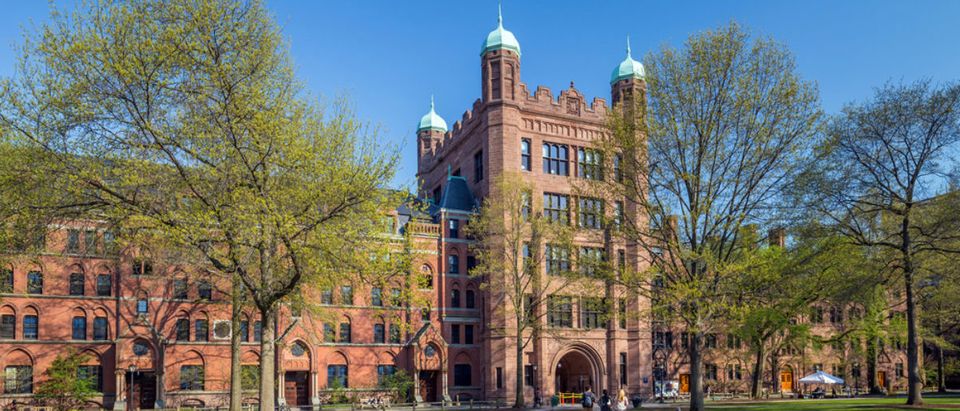Dozens of American billionaires, celebrities, and executives were indicted last week for allegedly committing fraud and bribery to gain their children’s admission to certain elite universities. Working through a college-admissions counseling firm headed by Rick Singer, these parents participated in a scheme that included a stunning array of illegal activities: bribing coaches, photo-shopping pictures showing supposed athletic prowess, having proxies take admissions tests on behalf of students, and paying exam proctors to provide correct answers and/or raise SAT and ACT test scores.
These wealthy adults could face prison time plus significant fines. Students whose college admissions resulted from fraud may face expulsion. Civil lawsuits have been filed, and these criminal and civil cases will wind their way through the courts.
While this scandal, so far, may be limited to a few prestigious universities, the allegations raise profound questions about American higher education that will linger for years: its cost, its purpose, its admissions processes, and its values. With student loan debt exceeding $1.5 trillion and many institutions charging tuition and fees that exceed median family income for a family of four ($62,175 in 2018), American higher education will endure a searing, painful, and long-overdue focus on these practices and the culture that fostered them.
The college-admissions scandal offers yet another example of an American system ostensibly rigged against average citizens. The 2008-2009 subprime-mortgage crisis saw millions of Americans lose their homes and file for bankruptcy while Wall Street elites escaped accountability. Our campaign-finance system is little more than an influence-peddling, rent- seeking, pay-to-play racket. Many Americans consider our elections to be either rigged or at least compromised by the limited competition resulting from gerrymandered congressional districts.
And now we appear to have a college-admissions system that, for elite institutions, is based on ability to pay and cheat rather than competition and academic merit.
It’s no wonder that populist themes resonate with more and more Americans. Whatever happened to Bill Clinton’s 1992 campaign theme about getting ahead by working hard and playing by the rules? Former Chicago mayor and Clinton White House Chief of Staff Rahm Emanuel once quipped that “you never let a serious crisis go to waste.” So what lessons does this scandal offer?
We need a national discussion, and possibly even congressional hearings, about the role of American postsecondary education. Is postsecondary education primarily about socialization and networking or learning and training?
What do we want our young people to know and be able to do after their postsecondary experiences?
Do we want college and university presidents to function primarily as fundraisers or as educators?
How should “legacy admissions” be handled? These are instances where priority may be afforded a student whose parent attended the same institution (and who also may have made substantial charitable contribution(s) to the school).
Why are so many football coaches paid more than presidents? The usual justification is that successful coaches and teams attract tons of money to the school. That’s great — but so do successful fundraisers in development offices or having a roster of Nobel laureates on the faculty. Coaches are employees; they should make less than college presidents.
Whatever happened to admission by academic merit? Colleges and universities are fundamentally about educating young people by equipping them with what employers call “knowledge, skills, and abilities.” They’re not country clubs or frat houses.
A former congressman told me shortly before this scandal broke about his experience as an adjunct political-science professor at two elite universities. He was shocked by the extremely poor reasoning and writing skills of many of his students. After he awarded a low grade to one student, the individual confronted him by saying: “I didn’t pay $60,000 to go here and get a C-.”
Admissions rigging is not limited to higher education. There are indications that these grubby practices start even earlier, at the pre-kindergarten level. Some readers may recall the 2002 stories about the aptly named Wall Street telecoms analyst Jack Grubman who wanted his twin daughters to attend the highly selective 92nd Street Y’s nursery school. Citigroup chairman Sanford Weill, an AT&T board member, suggested that Grubman reconsider his skeptical view of AT&T’s stock. Grubman did so, and Citigroup subsequently made a $1 million contribution to the 92nd Street Y.
American higher education remains a vital part of our economy and culture, and we must nurture its diversity and its excellence. Our future productivity and the vibrancy of our democracy depend on our maintaining the world’s finest colleges and universities. Gaming the system cheats all of us.
Charles Kolb was deputy assistant to the president for domestic policy in the George H.W. Bush White House from 1990-1992. From 1997-2012, he was president of the nonpartisan, business-led think tank, the Committee for Economic Development.
The views and opinions expressed in this commentary are those of the author and do not reflect the official position of The Daily Caller.


